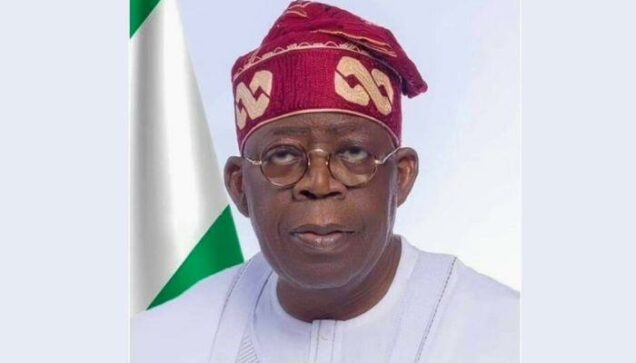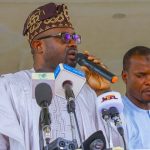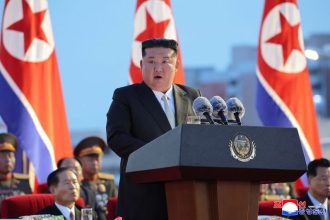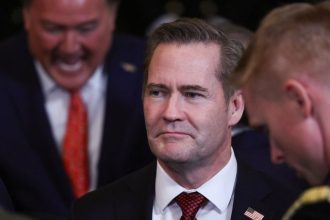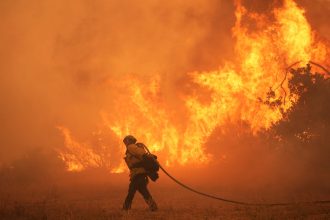President Bola Tinubu on Tuesday said his administration will remain resilient and has no fear of the trade policy direction of U.S. President Donald Trump, particularly tariffs targeting Nigerian exports.
Tinubu made the remarks when he received in audience members of The Buhari Organisation led by former Governor of Nasarawa State, Sen.
Tanko Almakura, who paid him a solidarity visit at the Presidential Villa in Abuja.
The President cited Nigeria’s current economic trajectory and growing non-oil revenues as buffers against external shocks.
Tinubu said, “If non-oil revenue is growing, then we have no fear of whatever Trump is doing on the other side.”
He highlighted Nigeria’s strengthened fiscal position, having met its 2025 revenue target as of August, and noted a stabilisation in the naira, which has appreciated to around N1,450 per dollar from a previous rate of N1,900 after he unified the exchange rates upon assuming office in May 2023.
President Trump’s second term has ushered in sweeping changes to U.S. trade policy, including the imposition of a 10 per cent baseline tariff on nearly all imports, alongside country-specific levies.
In his Liberation Day trade policy announcements on April 2, 2025, Trump introduced unprecedented reciprocal tariffs under his “America First” agenda, aiming to rebalance trade deficits.
The policy included broad country-specific tariffs ranging from 11 per cent to 50 per cent on top of a 10 per cent baseline.
Nigeria, like many sub-Saharan partners, now faces a 15 per cent tariff on its exports, effective August 7, following an initial 14 per cent rate announced in April.
However, energy commodities, including oil and gas, have been exempted from the new tariff regime.
Nonetheless, reports show that heightened trade tensions and tariff imposition have already dampened energy product exports globally in early 2025, disrupting demand flows for crude oil, gasoline, and diesel.
Tinubu also pointed to progress on his administration’s agricultural reform agenda, citing a massive mechanisation programme across regions.
“If we remove hunger, we have defeated poverty,” he said, arguing that food security is key to Nigeria’s economic recovery.
Meanwhile, Tinubu recounted internal debates during the formative days of the All Progressives Congress, revealing that he clashed with the late former President Muhammadu Buhari over the party’s logo.
Recalling the early merger talks that led to the APC creation in 2013, Tinubu said, “We disagreed to agree…We even argued over a symbol. He (Buhari) insisted on parliament, and I insisted on broom.”
“He’s so stubborn,” Tinubu said amid laughter.
Tuesday’s meeting brought together key northern party leaders, including Katsina State Governor Dikko Radda and former Governor Aminu Masari, and could be a consolidation of party ranks ahead of the 2027 electoral cycle.
The APC was officially formed in February 2013 through the merger of four opposition parties: the Action Congress of Nigeria, the Congress for Progressive Change, the All Nigeria Peoples Party, and a faction of the All Progressives Grand Alliance.
Tinubu, then National Leader of the ACN and former Governor of Lagos State, played a central role in the merger, while Buhari led the CPC.
Tinubu said their differing political cultures often clashed in the run-up to registration by the Independent National Electoral Commission.
The broom, ultimately chosen as the party’s logo, symbolised collective action against corruption and poor governance, party leaders say.
The coalition helped the APC unseat the long-ruling People’s Democratic Party in the 2015 elections, bringing Buhari to power.


